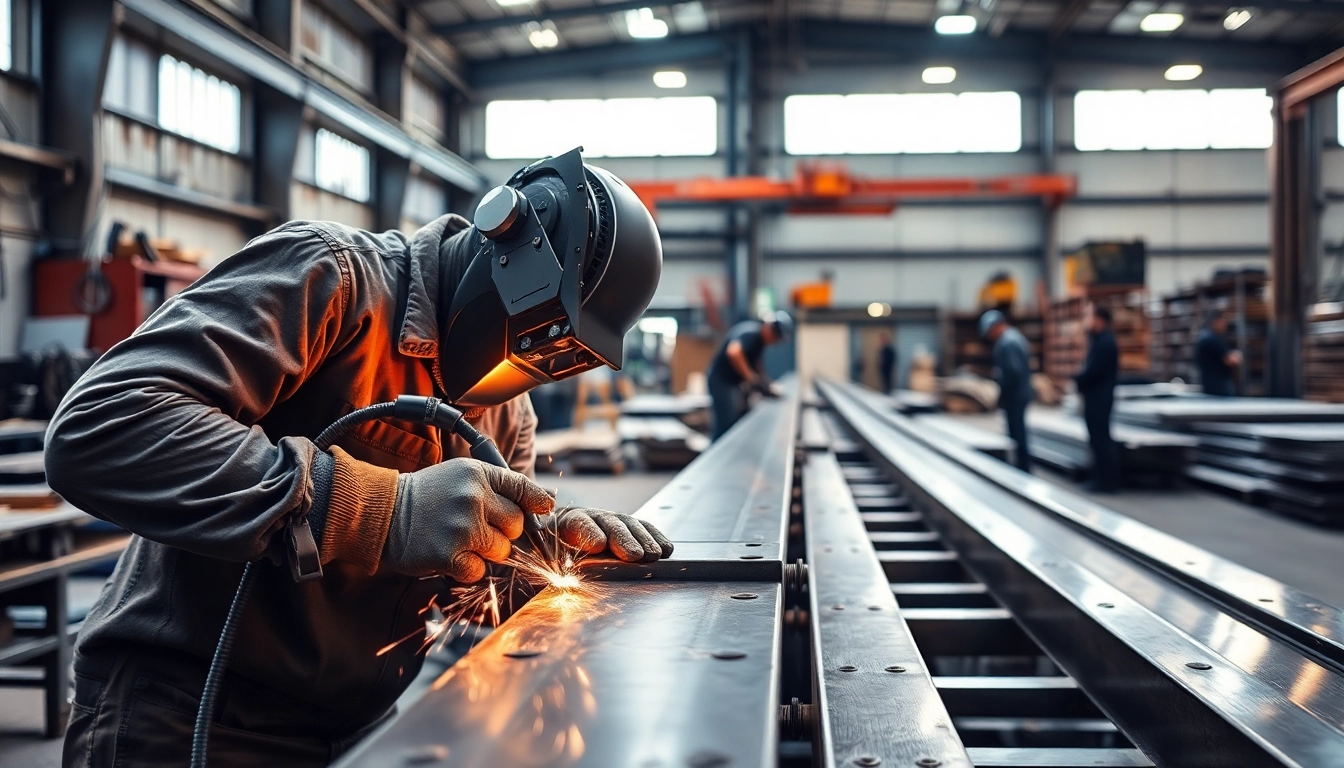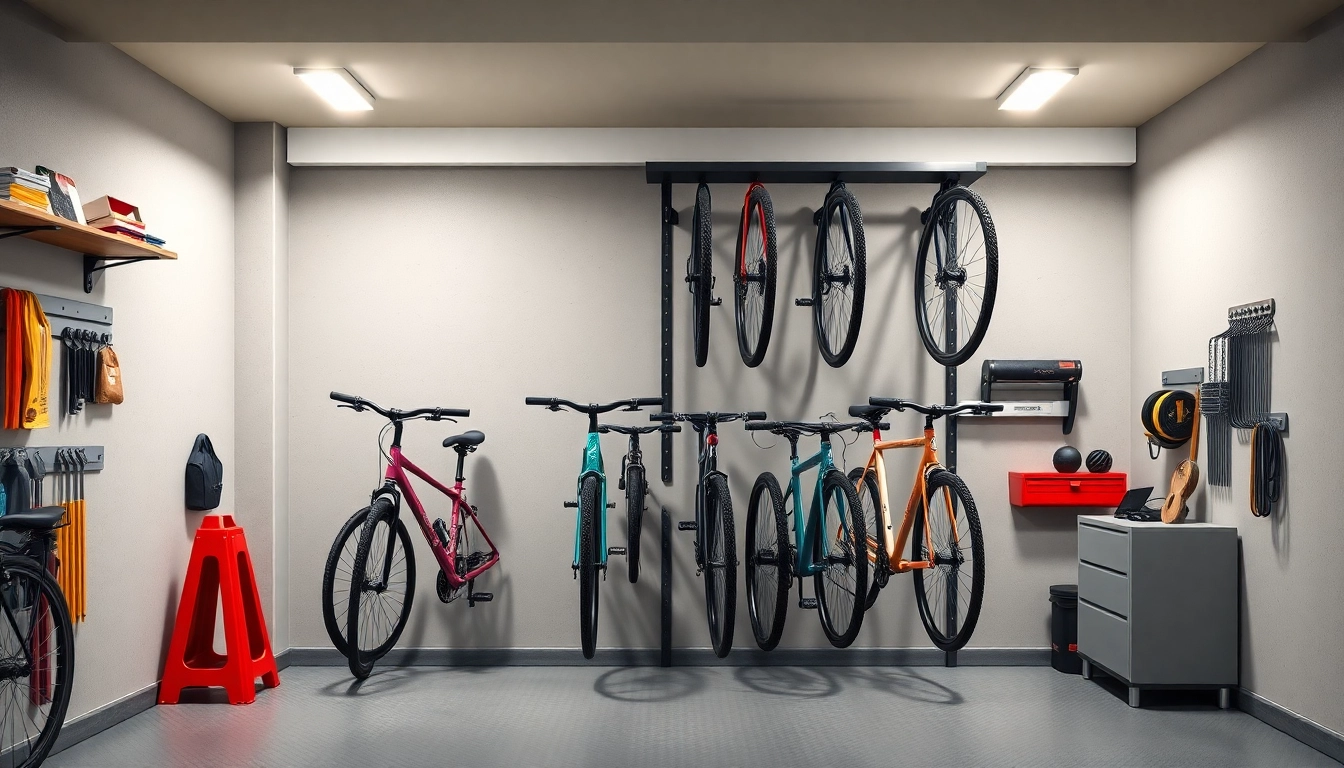
Understanding the Role of a Steel Fabrication Shop
What is a Steel Fabrication Shop?
A steel fabrication shop is a specialized facility where raw steel is transformed into structural steel components for various applications in construction, manufacturing, and engineering. These shops play a crucial role in creating the framework of buildings, bridges, machinery, and various infrastructures. Steel fabrication encompasses a series of processes including cutting, bending, welding, and assembling steel materials to meet stringent specifications and industry regulations.
Key Processes in Steel Fabrication
The steel fabrication process consists of several key stages that ensure precision and quality in the final products. Here’s an overview of the main processes:
- Cutting: This is the initial phase where large sheets or pieces of steel are accurately cut down to the required dimensions using plasma, laser, or band saws. Precision cutting is critical to eliminate waste and ensure proper fitting of steel components.
- Bending: After cutting, steel components may require bending to achieve specific angles or shapes. This is done using various tools such as press brakes or tube benders, contributing to the structural integrity and design of the final product.
- Welding: Welding is a crucial process that joins different steel pieces together. Various welding techniques like MIG (Metal Inert Gas), TIG (Tungsten Inert Gas), and arc welding are employed, depending on the type of steel and requirements of the project.
- Assembly: In an assembly process, welded and bent pieces are brought together to form larger structures or assemblies. This stage might involve additional processes like bolting or riveting.
- Finishing: Finally, the fabricated steel components undergo surface treatments such as sandblasting, painting, or galvanizing to protect against rust and to ensure a polished appearance.
Importance of Skilled Workforce in Steel Fabrication
The success of a steel fabrication shop highly depends on the skillset and experience of its workforce. Skilled fabricators bring valuable expertise that affects the quality, efficiency, and safety of the production process. Workers need a thorough understanding of metallurgy, as well as experience with various tools and machinery. Training programs and certifications, such as those offered by the American Welding Society or similar organizations, prepare workers for the technical challenges they face. Quality workmanship translates to strong, durable products that enhance safety and performance in their intended applications.
The Benefits of Working with a Steel Fabrication Shop
Quality Assurance and Standards
Quality assurance is paramount in steel fabrication, as the integrity of the structures and systems built with fabricated steel relies on high standards of production. Reputable steel fabrication shops adhere to industry standards such as ISO 9001 to ensure products meet predefined quality metrics. Implementing rigorous quality control measures at every stage of the fabrication process—from material selection to final inspections—ensures that the end products are safe, compliant, and fit for purpose.
Custom Solutions Tailored to Your Needs
Steel fabrication shops are known for their ability to provide customized solutions. Every project has unique specifications that demand tailor-made designs and solutions. Whether it’s constructing a large-scale bridge or designing intricate machinery parts, a good fabrication shop listens to its clients and translates their visions into reality. This customization can involve specialized designs, unique material specifications, and even innovative processes aimed at efficiency and functionality.
Cost Efficiency and Time Management
Partnering with a steel fabrication shop can lead to significant cost savings and optimized timelines. Professional fabricators have established supplier relationships, allowing them to procure materials at a reduced cost. Additionally, their expertise in the fabrication process minimizes waste and reduces the likelihood of costly errors. By effectively managing workflows and leveraging technology, steel fabrication shops can ensure faster turnaround times without compromising quality.
Common Challenges Faced by Steel Fabrication Shops
Managing Supply Chain Disruptions
One of the major challenges facing steel fabrication shops is supply chain disruptions. Fluctuations in steel prices and availability can greatly affect project schedules and budgets. To mitigate this issue, many shops invest in building strong relationships with multiple suppliers to ensure a steady flow of materials. They may also stockpile essential materials to cushion against market volatility, allowing for consistent operations even during unpredictable times.
Adapting to Technological Changes
The steel fabrication industry is continually evolving with the introduction of new technologies. Adapting to these changes can be challenging but is crucial for maintaining competitive advantage. Shops must continually train their workforce in state-of-the-art equipment and software, which may impact both time and finances. Forward-thinking shops embrace technology, partnering with tech experts to integrate new systems that enhance productivity and efficiency.
Ensuring Safety and Compliance
Safety in steel fabrication is non-negotiable. Fabrication workshops often involve hazardous machinery and processes that pose risks to employees. Therefore, adhering to Occupational Safety and Health Administration (OSHA) regulations and conducting regular safety training is vital. Implementing safety management systems and fostering a culture of safety will not only protect employees but also contribute to higher productivity rates by reducing downtime associated with accidents.
Innovative Technologies in Steel Fabrication
CNC Machines and Automation
Computer Numerical Control (CNC) machines have revolutionized the way steel fabrication is executed. These automated machines allow for precise cutting and shaping of steel with minimal human intervention. Automation reduces errors, enhances efficiency, and enables the ability to produce complex geometries that would be difficult or impossible to achieve manually. As the technology progresses, the integration of Artificial Intelligence (AI) and Machine Learning (ML) will further enhance capabilities in predictive maintenance and optimization.
3D Modeling and Design Software
3D modeling software has become an essential tool for steel fabrication shops, facilitating detailed design and visualization prior to production. Programs like SolidWorks and AutoCAD allow engineers and designers to create detailed models, enabling easier identification of issues before physical fabrication. This technology not only streamlines the design process but also assists in collaboration among stakeholders by providing clear visual references for complex projects.
Advanced Material Handling Equipment
The efficiency of a steel fabrication shop also hinges on the material handling equipment it utilizes. Innovations in material handling such as robotic arms and automated guided vehicles (AGVs) are not only increasing productivity but are also enhancing safety by reducing manual lifting. By investing in advanced material handling technologies, shops can ensure a smoother workflow, decrease wait times, and lower the risk of workplace injuries related to manual handling.
Choosing the Right Steel Fabrication Shop for Your Projects
Factors to Consider When Selecting a Fabrication Partner
Selecting the right steel fabrication shop for your project can be a daunting task given the array of options available. Key factors to consider include the shop’s experience, industry reputation, and range of services. It’s essential to ensure that the shop has experience in handling projects specific to your industry, particularly if your project involves specific standards and regulations.
Evaluating Past Projects and Client Testimonials
One effective way to gauge the reliability of a steel fabrication shop is by evaluating their past projects and client testimonials. A well-established shop will have a portfolio showcasing a variety of completed projects that reflect their capabilities. Furthermore, customer reviews and testimonials can provide insights into their service quality, timelines, and how they handle challenges during fabrication processes.
Understanding Service Offerings and Capabilities
Lastly, understanding the service offerings of a potential fabrication partner is crucial. Not all shops provide the same range of services; some may specialize in custom fabrication while others may focus on mass production. It’s important to check if the shop can meet your specific needs in terms of design flexibility, material types, finishing options, and delivery schedules. A comprehensive understanding of a shop’s capabilities will ensure alignment with your project goals.






